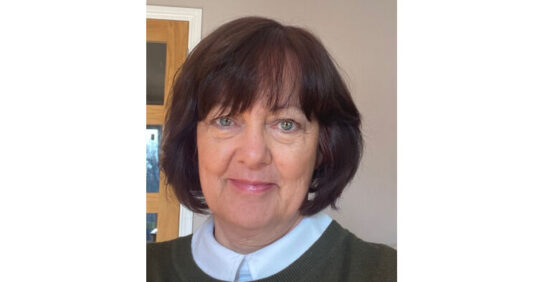Interview: Nurses to have a ‘strong strategic’ voice in ICBs

Nurses are set to have an ‘influential’ voice at national level and within integrated care boards (ICSs), the newly appointed chair of the ICB Chief Nurse Network, launched last week, has said.
Louise Patten, who is also ICS strategic advisor for the NHS Confederation, told Nursing in Practice: ‘Never before has nursing had such an opportunity to have a strong strategic voice. At the moment there is a focus on out of hospital care, and its nurses who will take accountability for those people coming home.
‘And I think given the emphasis on population health management, and on developing partnerships, never before has nursing have such an opportunity to have a strong voice.’
Related Article: Raising the profile of social care nursing and encouraging research in London
‘We were delighted when it was announced that there would be a mandated chief nursing post at the ICB level. When you think that there are only 42 IBCs, those nurses have a real opportunity, not only in the local level, but straight up to NHS England and the Department of Health.
‘It will be my role with the QNI and the NHS Confederation to use this joint exercise and ensure that chief nurses are linked into the thinking, the lobbying, and the policy makers.
‘We want to ensure that this group [of nurses] are linked into as many of these discussions as possible; not just when the policy comes out but actually influencing the policy as its being formed.’
Ms Patten said that she hopes the ICB Chief Nurse Network will also play a role in developing best practice for nurses across England.
‘We have to bear in mind that of the 42 ICBs, no two are the same. But at NHS Confederation we have this umbrella view, and we see some great examples of innovation and best practice that should be shared widely.
Related Article: Interview: Protection of ‘nurse’ title shows respect for profession
‘Our goal is to make sure that the best practice is caught and shared across our membership organisations who often have their heads down with their own work and innovation, so don’t always have time to share that with others.
‘This is about making sure that if a nurse has a special interest or particular experience, we can make sure they are linked to the conversation happening around that bit of policy or innovation.’
This role of making connections and developing practise, Ms Patten added, is one which nurses are particularly well suited to play within the ICB system.
‘I think that nurses have a real history of just getting on and doing, they can make those partnerships and relationships work and they’re very good at dealing with people. So there is a real opportunity here for ICB chief nurses to show the skills that they have in system leadership.
Related Article: Interview: England’s chief midwife on community midwifery and ‘going into other people’s worlds’

See how our symptom tool can help you make better sense of patient presentations
Click here to search a symptom




